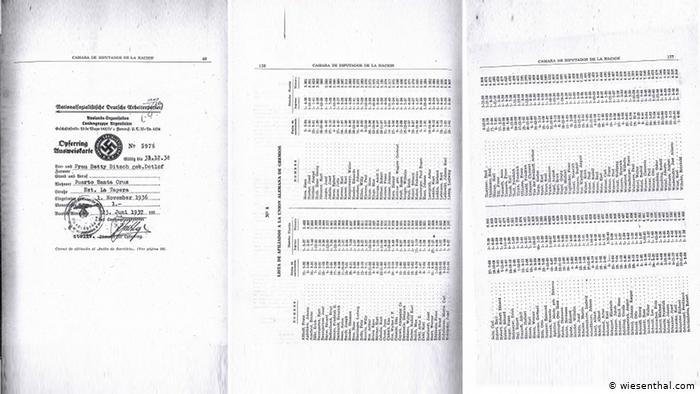Nazis in Argentina. Immediately after World War II, when many ranking members of the Nazi party in Germany were looking for somewhere safe to hide, they turned toward South America.
There they found a safe haven in countries such as Argentina.
These countries were, at that time, run by pro-Nazi military fascist dictators, who supported the Nazi refugees that arrived in their countries.

Some of the worst of the Nazi war criminals, men such as Adolf Eichmann, one of the principal organizers of the Holocaust, found a safe haven in Argentina.
Eichmann was kidnapped in Argentina by Israeli agents in 1960, and after a trial in Jerusalem, he was hanged.
What was never found was money looted from Holocaust victims and the people in the territories occupied by the Nazi forces.
In 1935, with the promulgation of the harsh and racist laws a fantastic amount of money was looted during the years of the Holocaust in the early 1940s.
After the war, investigators believed that much of this loot was placed in secret Swiss bank accounts. Still, there was no proof, and the Swiss banking laws, in effect at the time, ensured that these funds were kept secret and safe.
Before the war, when the anti-Nazi leadership under the presidency of Roberto Ortiz came to power in Argentina, he set up a commission to investigate the actions of the Nazis in his country.
This commission organized a raid on the Unión Alemana de Gremios or German Union of Syndicates, which was a Nazi organization. They confiscated many documents during this raid.

In 1943, a military coup d ‘état brought a new pro-Nazi regime into power in Argentina, and this new government ordered the findings of the commission to be destroyed.
All the documents that had been confiscated were burned. Until very recently, the world believed that all had been destroyed.
Pedro Filipuzzi, an investigator in Argentina, stunned the world by turning up an original list from the commission.
The file was found in a store-room of the former Nazi Headquarters in Buenos Aeries, and on this list were 12,000 names of Nazis living in Argentina in the 1930s. Included on the list were details of Swiss bank accounts.
Now Credit Suisse has been asked to investigate and identify if any of these accounts are lying dormant.
The Simon Wiesenthal Centre that has become famous for tracing Nazi war criminals has requested that the Swiss banking authorities investigate the accounts.
They believe that the accounts that have lain dormant for years may hold funds looted from Holocaust victims.
Christian Küng, vice-president of the Simon Wiesenthal Centre, has written to Credit Suisse, indicating that the Centre is aware that the banking entities in Switzerland “have claimants as alleged heirs of Nazis in the list.”
On the website of the Simon Wiesenthal Centre, is a statement indicating that Nazis on the recently turned up list have used one or more accounts at a bank, Schweizerische Kreditanstalt, which eventually became known as the Credit Suisse bank.
Credit Suisse issued a statement to the AFP news agency stating that they had, during the period 1997-1999, worked with the Volcker inquiry to try and trace any bank accounts that may have belonged to the victims of persecution by the Nazis.
Have You Heard of The Special Forces Ghost Car That Operated in Bosnia
Credit Suisse’s statement went on to say that they will look into the allegations raised by this latest list.
